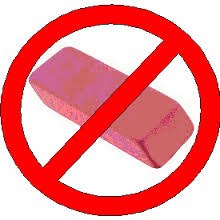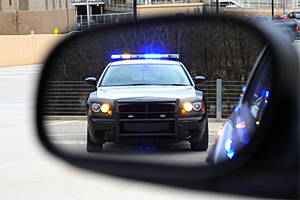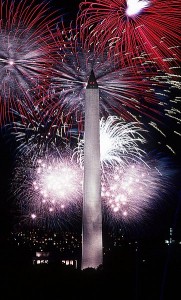Memorial Day 2020
Friday, May 22nd, 2020
As Memorial Day approaches in the Wilmington, NC area, the usual excitement and preparation for a holiday weekend has been replaced by uncertainty and frustration.
Wilmington mayor Bill Saffo announced on Friday morning that there will be several changes effective at 5:00 p.m. on May 22, for the phase 2 of reopening our economy. One change is the maximum capacity for hotels and motels was raised from 25% to 50%. Some restaurants and salons will be allowed to reopen with restrictions and limited capacity, but bars and breweries are still not allowed to reopen with this Phase 2.
In addition, Wrightsville Beach has lifted all short-term rental restrictions, beaches will be open to all activities, and more parking will be available at certain access points. On-street parking will remain closed to the public.
At Topsail Beach, there has also been restrictions lifted to allow activities and recreation on the beach, and some parking will be available. However, beachgoers are required to comply with regulations that are still in place, restricting groups of more than 10 people, and to maintain a minimum of six feet distance between you and other visitors.
In Carolina Beach specifically, Mayor LeAnn Pierce has amended the State of Emergency Declaration, allowing certain restaurants with private, off-road parking lots to use up to 25% of their parking lot to accommodate outdoor dining.
Other beaches, such as Kure, Ocean Isle, Holden, and Surf City, may also have their own specific guidelines, so make sure to research the restrictions before visiting one of our beautiful beaches over this Memorial Day Weekend.
We hope it will not become necessary, but if you or your loved one find yourself in need of an attorney for a serious personal injury, or you get into trouble with a criminal matter, or receive a traffic ticket, please give our office a call for a confidential consultation. We also handle wills and estates with our of counsel attorney, Mitch Baker.
By Karen M. Thompson, Paralegal

 Memorial Day is right around the corner, and for those of us near the coast, this means considerably higher traffic along our thoroughfares as vacationers flock to the beach for the holiday weekend. Ranking as one of the top ten most visited states for domestic travel, NC commonly experiences increased roadway congestion. What this weekend should also remind us of, however, is the extreme importance of automobile safety as our loved ones submit themselves to the mercy of their fellow drivers among our state’s highways. This sentiment is echoed by Governor Pat McCrory, who has officially declared May Seat Belt Safety Awareness Month. At 42% percent, almost half of passenger vehicle fatalities last year can be attributed to drivers or passengers not wearing seat belts.
Memorial Day is right around the corner, and for those of us near the coast, this means considerably higher traffic along our thoroughfares as vacationers flock to the beach for the holiday weekend. Ranking as one of the top ten most visited states for domestic travel, NC commonly experiences increased roadway congestion. What this weekend should also remind us of, however, is the extreme importance of automobile safety as our loved ones submit themselves to the mercy of their fellow drivers among our state’s highways. This sentiment is echoed by Governor Pat McCrory, who has officially declared May Seat Belt Safety Awareness Month. At 42% percent, almost half of passenger vehicle fatalities last year can be attributed to drivers or passengers not wearing seat belts. As a prelude to this text, please keep in mind that we are referencing DWIs currently eligible for expunction (i.e., those convicted of a DWI that were released from supervision 15 or more years ago) under N.C.G.S. § 15A-145.5.
As a prelude to this text, please keep in mind that we are referencing DWIs currently eligible for expunction (i.e., those convicted of a DWI that were released from supervision 15 or more years ago) under N.C.G.S. § 15A-145.5. With an improved economy and gas prices at a five year low, we will experience an increase in Thanksgiving travel this year. AAA Carolinas expects the increase to be of more than 4 percent compared to Thanksgiving of 2013.
With an improved economy and gas prices at a five year low, we will experience an increase in Thanksgiving travel this year. AAA Carolinas expects the increase to be of more than 4 percent compared to Thanksgiving of 2013. A traffic ticket can cause a lot of headache. It starts with embarrassment when the blue lights come up in your rear view mirror and when you have to sit on the side of the road while the officer investigates and issues your ticket and it continues far beyond. If you receive a traffic ticket, you should consult with an attorney on how to best handle your ticket.
A traffic ticket can cause a lot of headache. It starts with embarrassment when the blue lights come up in your rear view mirror and when you have to sit on the side of the road while the officer investigates and issues your ticket and it continues far beyond. If you receive a traffic ticket, you should consult with an attorney on how to best handle your ticket. On August 12, 2013, United States Attorney General Eric Holder announced to the American Bar Association’s House of Delegates in San Francisco, an initiative to curb mandatory minimum drug sentences that the nation is “coldly efficient in jailing criminals,” but it “cannot prosecute or incarcerate” into becoming a safer country. “Too many Americans go to too many prisons for far too long, and for no truly good law enforcement reason,” Holder said . The arguments about legalization of drugs in the US include health and social problems, potential tax revenue, and public safety concerns. However, this speech by our Attorney General focused on alleviating an overburdened prison system housing non-violent people convicted and sentenced to very long prison terms for peaceful drug crimes. Regarding the debate over legalization, the nation has moved from the question of “if” to the more tangible question of “how,” said Beau Kilmer, co-director of the RAND Drug Policy Research Center and co-author of “Marijuana Legalization: What Everyone Needs to Know.”
On August 12, 2013, United States Attorney General Eric Holder announced to the American Bar Association’s House of Delegates in San Francisco, an initiative to curb mandatory minimum drug sentences that the nation is “coldly efficient in jailing criminals,” but it “cannot prosecute or incarcerate” into becoming a safer country. “Too many Americans go to too many prisons for far too long, and for no truly good law enforcement reason,” Holder said . The arguments about legalization of drugs in the US include health and social problems, potential tax revenue, and public safety concerns. However, this speech by our Attorney General focused on alleviating an overburdened prison system housing non-violent people convicted and sentenced to very long prison terms for peaceful drug crimes. Regarding the debate over legalization, the nation has moved from the question of “if” to the more tangible question of “how,” said Beau Kilmer, co-director of the RAND Drug Policy Research Center and co-author of “Marijuana Legalization: What Everyone Needs to Know.”
 Job security is always an aspect to consider when choosing a job or career path, especially with a sloping economy. Economists are predicting that over the next fifteen years certain jobs in the medical field such as nurses and nursing assistants will become in short supply, which will increase the demand for such jobs. There are many different certifications and licenses you may receive within this targeted medical field such as becoming a registered nurse, a certified nursing assistant, a licensed practical nurse, along with many more. Persons in the health care field have a very emotional job as they work with those who are sick and ill. As they work with those, who many times cannot take care of themselves, sometimes questions and allegations arise as they help others’ loved ones.
Job security is always an aspect to consider when choosing a job or career path, especially with a sloping economy. Economists are predicting that over the next fifteen years certain jobs in the medical field such as nurses and nursing assistants will become in short supply, which will increase the demand for such jobs. There are many different certifications and licenses you may receive within this targeted medical field such as becoming a registered nurse, a certified nursing assistant, a licensed practical nurse, along with many more. Persons in the health care field have a very emotional job as they work with those who are sick and ill. As they work with those, who many times cannot take care of themselves, sometimes questions and allegations arise as they help others’ loved ones.
 The New Hanover County Courthouse located in Wilmington, NC is closed today, Thursday March 8, 2012, because of an infestation of bed bugs! Courthouse personnel said they noticed some bed bugs in the building and notified the New Hanover County division of Property Management.
The New Hanover County Courthouse located in Wilmington, NC is closed today, Thursday March 8, 2012, because of an infestation of bed bugs! Courthouse personnel said they noticed some bed bugs in the building and notified the New Hanover County division of Property Management.